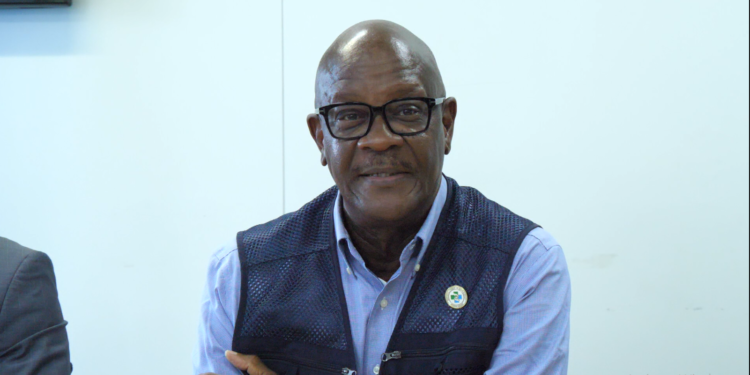By Kemo Cham
Lessons learnt from the West African Ebola epidemic place Sierra Leone on a stronger footing to deal with Mpox, the country’s Health Minister has said.
Dr Austin Demby said eight years after the deadly epidemic that ravaged mainly the Mano River region, Sierra Leone is in a better position in many fronts to either prevent the virus from entry or to rapidly contain it, if it eventually slips in.
“In 2014, when we had the Ebola outbreak, we were not ready for it. No country in the world could have been ready for what happened in West Africa,” he said.
“It took us about a year to actually get our acts together to respond appropriately. And when we did, we were able to contain the outbreak and saved the world. Circumstances are different today. The experience we learnt from Ebola allowed us to prepare for, to prevent and to effectively respond to Covid-19,” he added.
Demby was speaking during a press briefing dedicated to the Mpox outbreak that is ravaging several countries across Africa.
The epidemic which started in 2022, has spread to multiple countries in all four regions of the continent.
The Africa Centers for Disease Control and Prevention (Africa CDC) and the World Health Organization (WHO) have both declared it public health emergency.
Data from Africa CDC show that as of August 19, 13 countries were recording cases on the continent. Majority of them were in East and Central Africa, with the Democratic Republic of Congo as the epicenter.
In West Africa, two of Sierra Leone’s neighbours – Cote d’Ivoire and Liberia – are affected. And this is particularly a concern for epidemiologists.
Dr. Innocent Nuwagira, WHO Country Representative, said this emphasizes the need for higher level of public awareness.
While assuring WHO’s commitment to support Sierra Leone deal with Mpox, Dr Nuwagira warned that the uncontrolled transmission of the virus could increase its adaptability and raise the risk of more challenging strains that could be harder to control or treat.
“There is a crucial window of opportunity to intensify collective efforts and achieve the goal of stopping the outbreak,” he said.
This week, a case suspected to be Mpox was ruled out by the National Public Health Agency after test carried on the sample from a victim who showed symptoms similar to the viral infection came back negative.
At Tuesday’s press briefing, Dr Demby said the government had two main priorities in its response to Mpox – to deny the virus access and, if it eventually comes, to rapidly contain and prevent it from spread further.
But in order to achieve any of this, the Health Minister stressed, the public has a key role to play. He spoke against stigmatization of people with symptoms, which he said could prevent them from seeking treatment, thereby making it difficult to contain any outbreak.
“This is a bad disease, but it is a disease that we are able to manage. If we could manager Ebola, what more this…We have confidence that we will be able to manage this, we will be able to contain it, but it takes a concerted effort of the public and medical service delivery,” Dr Demby stressed.






















